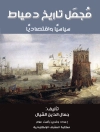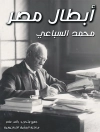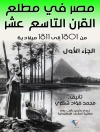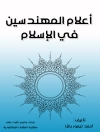Identifying gaps in knowledge is the first duty of any historian who sets out to understand the past. It is impossible fully to understand our forebears without some idea of what they did not know: the history of ignorance is an indispensable part of history itself.
Here Alain Corbin focuses on our planet, exploring its mysteries past and present, and the intensity and eventual decline of the modes of terror and wonder it aroused. For thousands of years, humans knew nearly nothing about the earth. Certain locations on the map simply read ‘Terra Incognita’. Corbin recounts the many errors and uncertainties that littered the paths we followed in the attempt to discover the secrets of our blue planet, with a particular focus on the eighteenth and nineteenth centuries when the mysteries of volcanoes, the polar regions, glaciers, the stratosphere and the oceans began to be uncovered. While ignorance stimulated our ancestors’ imagination, Corbin’s history of ignorance reawakens our thirst for knowledge and changes our view of the world.
विषयसूची
Acknowledgements
A comprehensive history implies the study of ignorance
Part I : Gaps In Enlightenment Knowledge Of The Earth
1. The Great Lisbon Earthquake of 1755
2. The Age of the Earth?
3. Imagining the Earth’s Internal Structure
4. The Mystery of the Poles
5. The Unfathomable Mysteries of the Deep Sea
6. Discovering Mountains
7. Mysterious Glaciers
8. A Fascination for Volcanos
9. The Birth of Meteorology
10. Conquering the Skies
11. The State of Scientific Ignorance at the End of the Age of Enlightenment
Part II : A Gradual Decline in Ignorance (1800-1850)
12. Understanding Glaciers
13. The Birth of Geology
14. Volcanoes and the Mystery of ‘Dry Fogs’
15.The Ocean Depths and the Fear of the Unknown
16. Reading Clouds and the Beaufort Scale
17.The Poles Remain a Mystery
18. The State of Scientific Ignorance in the Early 1860s
Part III : Shrinking the Boundaries of Ignorance (1860-1900)
19. Exploring the Ocean Depths
20. The Development of Dynamic Meteorology
21. Manned Flight and the Discovery of the Troposphere and Stratosphere
22. Scientific Volcanology and the Birth of Seismology
23. Measuring the Grip of Ice
24. Solving the Mysteries of Rivers : Fluvialism, Hydrology and Speleology
25. A New Approach to Reading the Globe
26. Was There Open Sea at the Poles?
27. The Earth Sciences Slowly Filter into General Knowledge
28. Measuring Ignorance at the Dawn of the Twentieth Century
Notes
Index
लेखक के बारे में
Alain Corbin is Emeritus Professor of History at the University of Paris 1, Panthéon-Sorbonne.












